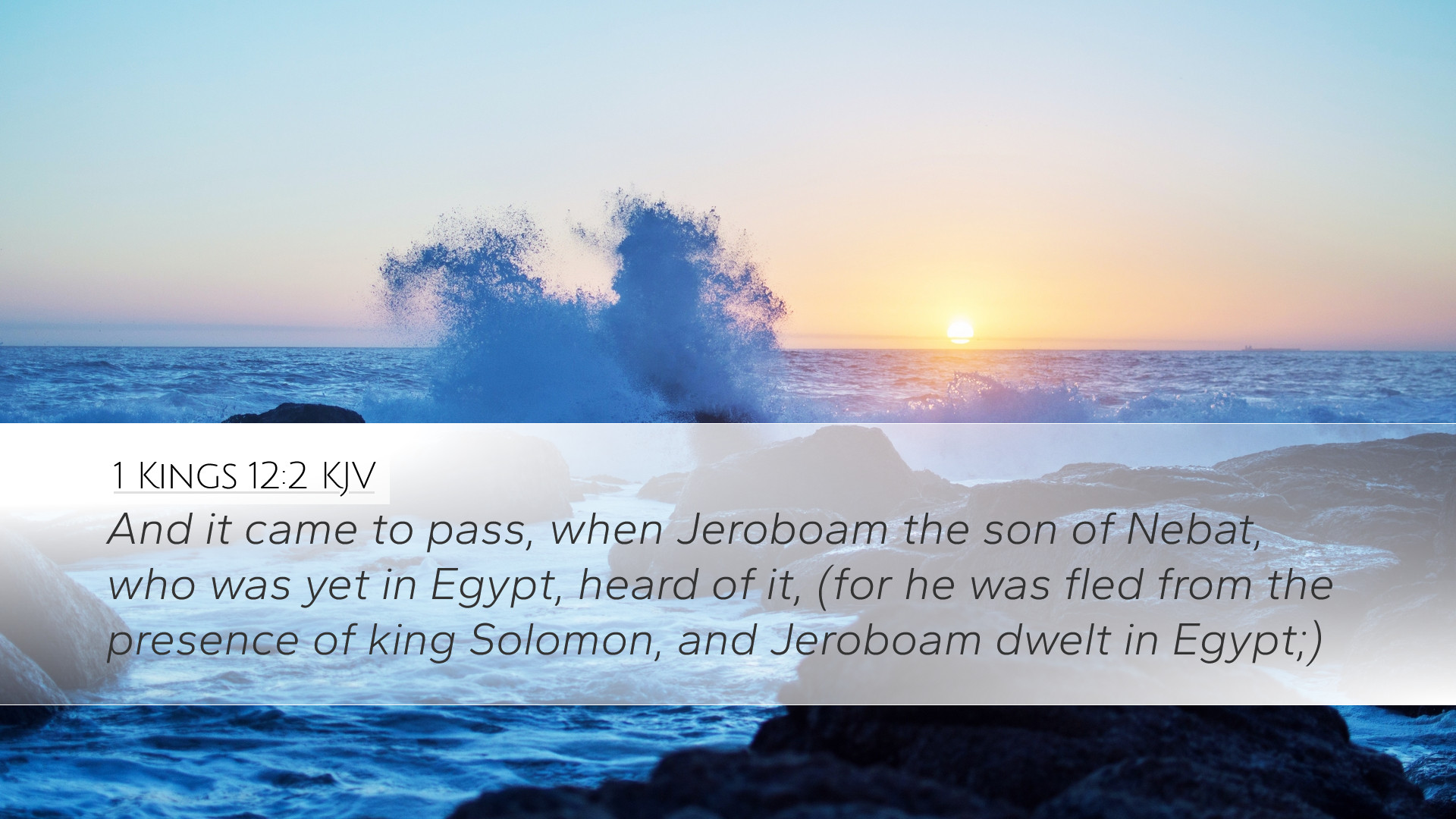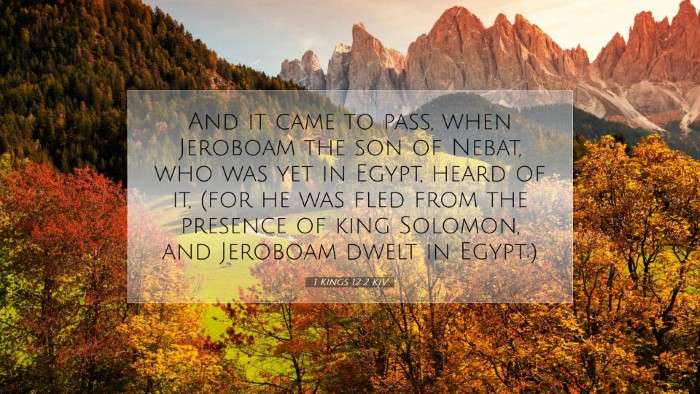Commentary on 1 Kings 12:2
Verse Reference: 1 Kings 12:2 - "And it came to pass, when Jeroboam the son of Nebat, who was yet in Egypt, heard of it, that he returned out of Egypt."
Overview
This verse marks a pivotal moment in the narrative of the Kingdom of Israel during the reign of Solomon's son, Rehoboam. The political landscape is shifting, and the tensions among the tribes of Israel are at the forefront. Jeroboam, previously a servant during Solomon's reign, becomes a key figure in the impending division of the kingdom.
Historical Context
The backdrop of this verse is essential for understanding its significance. Solomon had led Israel to great prosperity, yet his later years were marked by idolatry and heavy taxation. The people's discontent is crucial as it sets the stage for the rebellion that Jeroboam leads.
Matthew Henry's Insight
Matthew Henry emphasizes Jeroboam's rise as both providential and challenging. He points out that Jeroboam was in Egypt when he received news of Solomon's death, suggesting that this could be seen as a divine orchestration for Jeroboam's return. Henry notes that his return is indicative of "the effects of bad government," as the people sought relief from heavy burdens.
Albert Barnes' Commentary
Albert Barnes elaborates on the significance of Jeroboam's time in Egypt, interpreting it as a period of preparation. He states that the Egyptian exile was not merely physical but symbolic of a larger journey towards leadership. Barnes argues that Jeroboam's return was not only a personal vindication but also represented the collective hope of the Israelites for improved governance and relief from oppression.
Adam Clarke's Perspective
Adam Clarke provides a more narrative-driven perspective, discussing the events leading up to Jeroboam’s return. He notes that the news of Solomon’s death would have spurred various factions within Israel, and Jeroboam's emergence was a direct response to the people's desire for change. Clarke suggests that Jeroboam saw an opportunity to assert leadership and advocate for the grievances of the northern tribes.
Theological Implications
The return of Jeroboam holds significant theological weight. It represents a shift in divine favor and the fulfillment of prophetic pronouncements concerning the division of the kingdom. The broader implications can be understood as follows:
- Divine Sovereignty: The narrative shows God's ultimate control over the affairs of men and nations, setting the stage for events that fulfill His purposes.
- Human Agency: The actions of Jeroboam reflect the duality of divine oversight and human free will, as foretold prophecies unfold through individual decisions.
- Leadership Responsibility: The text raises questions regarding national leadership and the moral responsibilities of those in authority, highlighting the consequences of poor governance.
Lessons for Today
Pastors and theologians may draw several lessons from this passage:
- Awareness of Leadership: Just as Jeroboam was positioned due to divine providence, contemporary leaders should be mindful of their roles in guiding communities, recognizing the potential for both healing and division.
- Discontent and Change: The dissatisfaction that leads to transformational change should not be overlooked. Leaders are called to listen to the voices in their communities and act justly.
- Navigating Conflict: The complexities of familial and national conflicts depicted in this passage remain relevant, urging leaders today to seek unity rather than division.
Conclusion
1 Kings 12:2 serves as a vital touchpoint in the history of Israel that illuminates themes of leadership, divine intervention, and social justice. The insights drawn from various commentaries establish a robust framework for understanding both the historical and theological dimensions of this verse. For pastors and scholars alike, this passage encourages a deeper reflection on the responsibilities of leadership, the dynamics of power, and the unwavering nature of God's plans amid human affairs.


